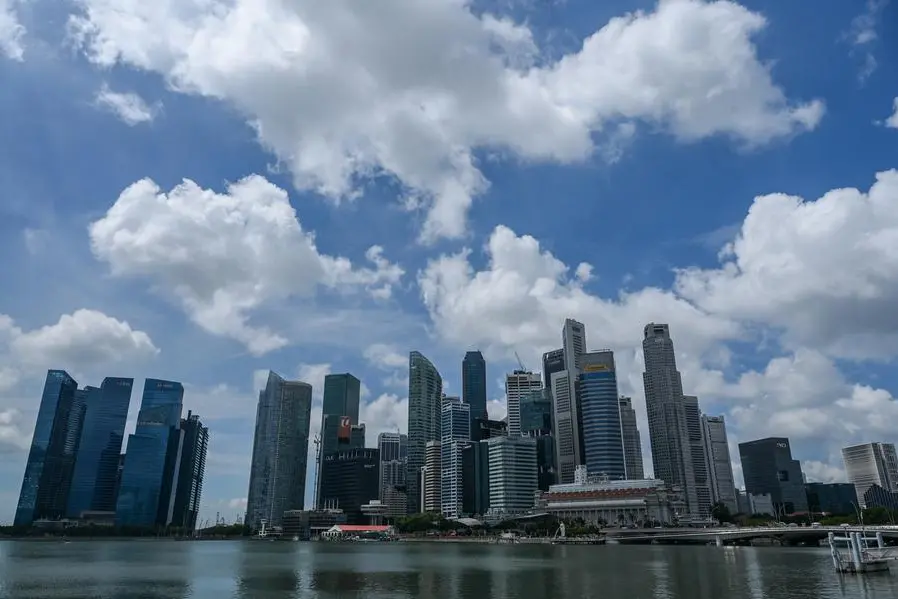PHOTO
Singapore's economy grew less than expected last year, the government said Thursday as it warned geopolitical risks would continue to cause headwinds this year.
The city-state's economic performance is often seen as a barometer of the global environment because of its reliance on international trade.
The 1.1 percent expansion last year, released by the trade ministry, was short of the 1.2 percent announced by Prime Minister Lee Hsien Loong on New Year's eve based on advance estimates.
It was the third straight year of growth since a recession in 2020 induced by the Covid-19 pandemic, but slower than the 3.8 percent seen in 2022 and 8.9 percent in 2021.
This year's growth forecast was unchanged at 1.0-3.0 percent, the ministry said.
Last year's tepid performance was caused by weaker global demand for Singapore's exports -- the key manufacturing sector shrank 4.3 percent, reversing the previous year's 2.7 percent growth.
"Singapore's external demand outlook for 2024 has remained largely unchanged," the trade ministry said in a statement.
Economic growth in major export markets including the United States and the eurozone "is expected to moderate in the first half of the year, mainly due to continued tight financial conditions, before recovering gradually in line with an expected easing of monetary policy as inflationary pressures recede", it added.
China's economy "is projected to remain lacklustre in the first half of the year due to sluggish domestic consumption and exports growth alongside weak property market conditions", the statement said.
Downside risks to the global economy "remain significant", it warned, citing a widening of the Israel-Hamas conflict and the war in Ukraine, which could disrupt global supply chains.
Adverse weather events and the delayed effects of high interest rates could also weaken the momentum of any global economic rebound, the ministry said.





















